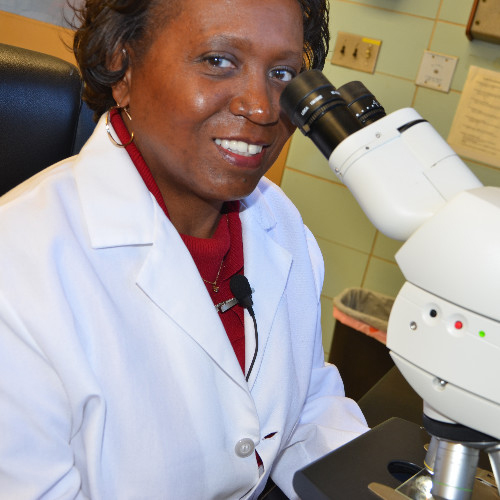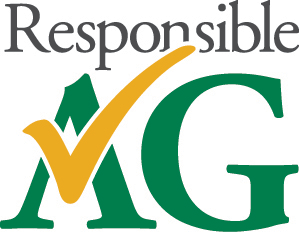Probiotic Solutions® is sponsoring a Wastewater Microbiology course with microbiologist & certified operator Dr. Toni Glymph-Martin in Arizona on April 11-12, 2023.

About the Instructor:
As a wastewater microbiologist and certified operator who has spent more than 40 years working, teaching, and researching in the field of wastewater microbiology, Dr. Glymph-Martin has gained considerable knowledge of wastewater treatment design and operation. She has also earned international recognition as an expert in her field, receiving numerous awards for her work. She is the author of Wastewater Microbiology: A Handbook for Operators, and A Wastewater Microbiology Laboratory Manual for Operators. More information about Toni and her work is available at https://www.wwmicrosolutions.com/.
Course Details:
- Course Dates:
April 11–12, 2023 (in-person, no virtual option)
- Class Times:
On-site Check-In on April 11, 7:30 am
Classes: 8:30 am–4:00 pm, both days
- Location:
Bio Huma Netics, Inc.
1331 Houston Ave.
Gilbert, AZ 85233 Map
- Fees and Registration:
- As this course involves hands-on use of microscopes, attendees are encouraged (but not required) to bring their own microscopes and wastewater samples. We will try our best to accommodate the use of microscopes if your system does not have one to bring.
- Registration Link: Eventbrite
- The course fee is $450 per attendee. Payment can be made by using credit/debit card or by PayPal. You’ll be asked the following questions:
- I will bring a microscope (encouraged but not required).
- I will bring a wastewater mixed-liquor sample on ice (encouraged but not required).
- I need CEUs/PDHs for attending this course.
- I am a member of AZ Water or Rural Water Association of Arizona.
Course Sponsors:
Probiotic Solutions®, AZ Water Association, and Rural Water Association of Arizona
Day One Agenda, April 11
8:30–9:30 Introduction to Microscopy
- Slide preparation
- Sampling
- Hands-on activity
9:30–11:00 Wastewater Microbiology
- The Role of Bacteria
- Growth Characteristics
- Parameters Affecting Their Growth: Oxygen, Sludge Age, Food: Microorganism (F:M) ratio, Other Parameters
- Hands-on activity
11:00–11:30 The Role of Protozoa and Metazoans
- Parameters Affecting Their Growth
- Identifying Protozoa and Metazoans
11:30–12:00 BHN Facility Tour
12:00–1:00 Lunch (On Your Own)
1:00–2:15 Process Control Using the Microscope
- Dispersed bacteria
- Protozoa & Metazoa: Relative Dominance
- Slime Bulking & Nutrient Deficiency
- Toxicity
2:15–4:00 Microorganisms Response to Unfavorable Conditions
- Bacteria—Zooglea
- Bacteria—Exocellular Lipopolysaccharide
- Protozoa & Metazoans—Shelled (Testate) species
Day Two Agenda, April 12
8:00–8:45 What are Filamentous Bacteria?
- Conditions That Favor Their Growth
8:45–9:00 Sampling and Staining
- Slide preparation
- Hands-on activity
9:00–10:00 Filamentous Bacteria Characteristics
- Cell size and Shape
- Sheath and Motility
- Attached Growth
- Sulfur Granules
- Hands-on activity
10:00–12:00 A Simple Approach to Identification and Control
- Bulking Filaments
- Foaming Filaments
- Staining
- Hands-on Activity
12:00–1:00 Lunch (On Your Own)
1:00–2:00 Filamentous Bacteria Counting
- Hands-on Activity
- Case Studies
2:00–4:00 Microbiological Monitoring of EBPR Systems
- PAOs, PHB, POLYp and GAOs
- PHB and Neisser Staining
- Quantifying PAOs and GAOs
- Hands-on Activity
Related Posts

Get the “P” Out of There!
By Heather Jennings, PE Phosphorus is one of the most abundant elements on earth. It’s essential for adenosine triphosphate (ATP), the energy carrier life is built on. But in excess in our lakes and ponds, we see large algal growths occurring. Many times, these algal blooms suffocate the surrounding aquatic life and or produce toxins...

Bio Huma Netics Achieves Responsible Ag Certification
Bio Huma Netics, Inc. (BHN), the maker of Huma Gro® and Fertilgold® Organics crop nutrition and protection products, has achieved Responsible Ag certification for its fertilizer manufacturing facilities. Responsible Ag is the only program in the nation that provides a voluntary comprehensive assessment of a fertilizer manufacturer’s compliance with federal regulations. Certification requires that a...

Anaerobic Digester Saves 42% In Sludge Hauling
by Heather Jennings, PE The case summary described below is an example of how our Bio Energizer® product helped reduce overall solids handling and improved supernatant clarity. It really doesn’t take much Bio Energizer® to reduce solids within your system when the microbial community is stimulated or “kicked into gear” to do their job. Typically,...

